Quo Vadis, Gaming? Serious Reflections on Progress, FOMO, and Direction of Gaming
„Those were the days!” – this, deeply philosophical call, seems to reflect an inner restlessness and unspoken longing. But is there truth in it? And does it apply to the gaming biz? Let's find out!
3
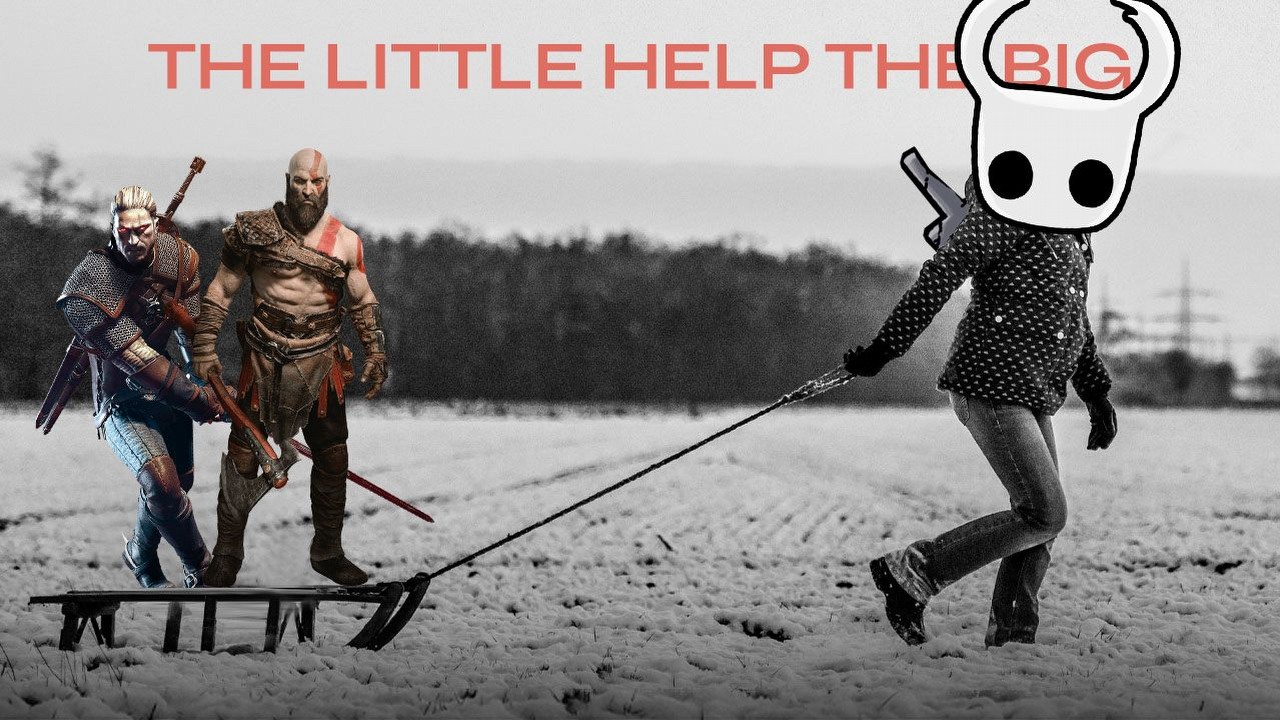
Dunno about you, but I sometimes lack motivation, inspiration, stimuli, money, support, time or, oh, I don’t know... focus. When some cosmic coincidence causes a random concurrence of at least a few of these, the creative power awakens. At least that's how it works in my case. So on one, beautiful autumn evening, I was shocked to discover that almost all of these graces came to me for some reason.
So, I grabbed the keyboard... and then put it down, because it's inconvenient to type while grabbing the keyboard. "Where to begin?" I thought. Ideas were ringing in my head like prisoners awaiting parole, and I decided to reach for the ones that were ringing the loudest... And then I realized I was missing missed the cell keys.
To the point, then: I wanted to write something about the development of dungeon crawlers, the fall of classic strategy/RPG hybrids, so that, in the end, it would be a piece about the twilight of video game genres as we know them.
Charts and bars
The common denominator of all the thoughts swirling in my head were changes taking place over time, which is not far from the definition of "progress." Progress, in essence, consists in perfecting, expanding and improving. Was this the case with video games in recent decades? Let's see.
A large part of you may have just smelled the soft scent of tautology, perhaps with a pinch of finding a problems where there are none. “After all... games are evolving. Period. Just compare the first GTA with the fifth one and all doubts will go away." Sure, it is a viable argument to make. In the timespan separating these two games, there was certainly enough progress to make it obvious. The way from King's Quest to Skyrim, or from the first to the fifth installment of GTA, is truly something to behold. However, when we zoom in to smaller scale and compare titles from, say, two subsequent generations, the progress becomes much more elusive. This is understandable even if we just use common sense.
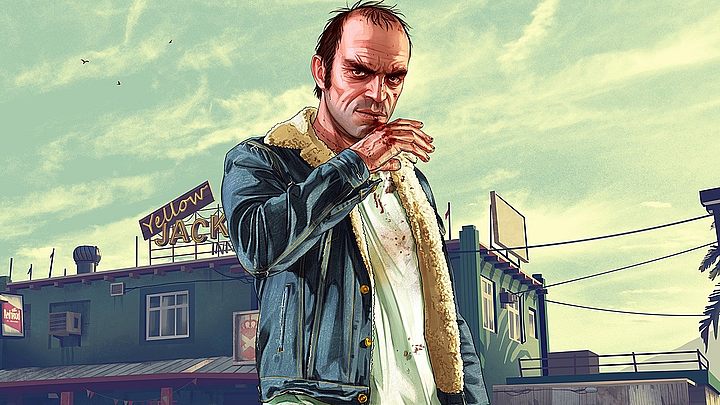
So how to define the current state of the gaming industry? Are we headed in the right direction? Is what we're experiencing in gaming now a step forward from what we had a few years ago? Or are we somehow stuck? Well... one rabbi will say "yes," another will say "no." We will find out who's right in a few years.
Meanwhile, I can't shake off the feeling that we are at a rather peculiar moment in history of games. This is a time when uncertainty concerning the trajectory of gamedev isn't just a matter of a narrow comparative horizon. It's something more. Something disturbing. Some saturation, or material fatigue, there seems to by only inertia. On the other hand, there are some signs of hope.
I don't know, but I can guess...
My doubts intensified as I was working on the texts mentioned above, particularly when I was thinking about my beloved genre hybrids. I started asking myself: what's become of Warcraft? What about SpellForce? Where's my King's Bounty? Not to mention the new Disciples. And HoMM... What has happened (or is happening) with the games closest to my heart? Is this a phenomenon that I fail to understand, or just the twilight of something that I enjoyed? Something was wrong with these series, which means there was something wrong with the whole branch out of which they grew, first high into the air, just to end up where they are today – dry and threatened by collapse. Perhaps it's a problem going much farther? Or maybe it's just me?
That's right. The changes taking place in the gaming industry in recent years were not always well-fitted to the realm of statistical data; they were equally part of the unbridled and frivolous land of human tastes, memories, and sentiments – the sweet, sweet subjectivism. Not everything can be measured, not the least in the broad context of all players.
How to define a variable that would constitute irrefutable evidence of the progress or regression of a given genre? Time on the x-axis, and what about the y-axis? Floating point operations? Number of released games? Number of dialogue lines? Average rating on Metacritic? That's right. I guarantee that each of us could have created a different graph, and each would be a subjective representation of objective reality.
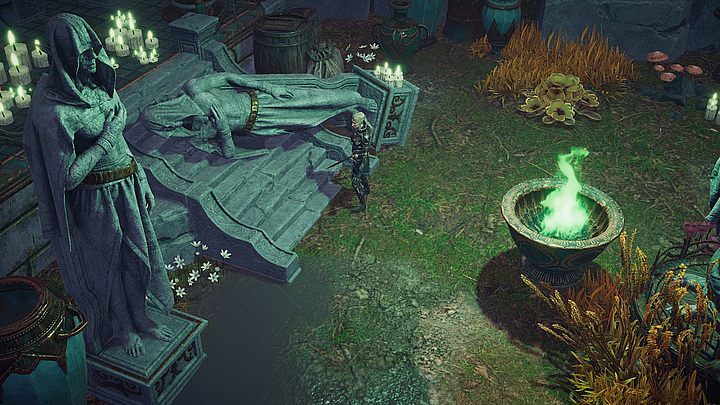
I thought about it for a long time and – like a natural personal trainer or PR specialist – I came up with (and probably duplicated) a universal catchphrase: "diversity drives progress." This sentence, which is also a preamble to solving this puzzle, will guide us on our way to answering the questions that bother me, including THE question: "Where are you going, video games?"
Why diversity? In my opinion, it's an objectively reliable source of change in the gaming industry, and that's where I decided to begin my analysis.
The polyculture
In the case of movies, we often speak about genre cinema, describing an inclination to rely on generic patterns, and thus meaning film that is, to an extent, locked inside a given form. And that's by no means a detriment to these films. It's quite the opposite. Building a genre and blazing trails with subsequent, original productions is extremely tedious, but it also generates stimuli for the industry to do things differently.
The emergence of something fresh among the most hackneyed of movie genres – moral dramas, or tons of romantic comedies – often evokes mixed feelings among the recipients of cinema. But let's take a step back. The cinema is over a century old. Genre diversity leads to changes in the viewer's perception, expectations, and consequently their tastes. In movies, it led to genre diffusion; a great mingling of rules, solutions and experiences. To paraphrase the film expert and professor of cinema, Rick Altman: this whole thing is nothing more than a process of development. Changes, whatever they are, lead to progress.
Although our medium, i.e. video games, has just grown out of diapers, we have a lot to say when it comes to systematizing the works found on our piece of the cultural landscape. What's more, the dynamics with which changes in the definition of video game genres take place can even bring to mind Hoyle's Fallacy, i.e. the chance that "a tornado sweeping through a junkyard might assemble a Boeing 747." And it's not about garbage art.
Determining the genre of any game in 2022 is usually quite a daunting task. Who said 2017's God of War was an action game? Maybe it was an RPG emphasizing combat? Personally, I would even call it... a metroidvania. It perfectly fits the definition of the genre created by Koji Igarashi, the father of Castlevania: "A non-linear game with a large map, mandatory exploration, and progression based on skill." Works for me.
Or is it madness to create a city builder based on roguelike mechanics mixed with a card game, and who knows what else? Well, have you played Against the Storm? Not only is it not madness, it's also hella playable.
Nowadays, artists don't even care about the genre of their games all that much. It's the publishers and journalists who bend over backwards to find more inventive descriptions of the games, ones that would give players the best idea of what a given title is all about. The only right solution, I think, are steam tags that break down games into their first elements that constitute the trashy Boeing 747. Games are puzzles of genres, they are like atoms rubbing against each other, often combining in a spontaneous and surprising fashion.
So, if anyone feels like fighting for "genre purity" of roguelike games, or whatever other genre they want – it's time to stop and help yourself to some lemon balm tea. Same goes for the tug-of-war of people insisting on calling games about building settlements "city builders," or "economic strategies." Just calm down. This war is already lost.
Addicted to independence
Oh, this whole progress of games is tough business! Few are willing to make this effort. Most large publishers (with a few exceptions, such as, arguably, Nintendo) prefer to sit on the laurels and drink the nectar of microtransactions, games-as-service and factory-line franchises. Every once in a while, however, they will turn their heads to glance forward and whip a small bunch that tirelessly pulls the industry forward. And by that, I mean indie games.
This is by no means a groundbreaking thought – anyone who’s even a little interested in the gaming industry is able to name at least a few indie games that have contributed to pushing gaming forward. Minecraft, Celeste, Amnesia: The Dark Descent, Don't Starve, The Binding of Isaac. These are just a few examples of games that, in some way, contributed to expanding the boundaries of gaming, even if by just a few centimeters. It's no coincidence that the mathematical phenomenon of multiplication is the sponsor of today's episode.
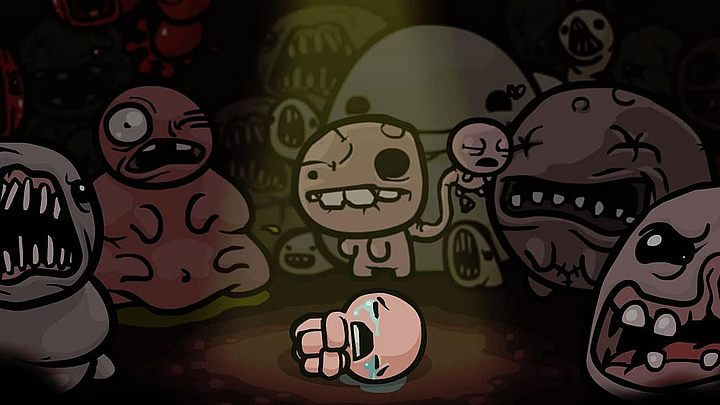
Yes. Indie games are mushrooming. It's a fact. The expansion of distribution platforms, stores, the wide availability of development engines and specialized knowledge are the divine elements that create home-grown developers, and thus bring thousands of indie games. However, the horror and feeling of being overwhelmed by the weight of independence is nothing compared to what these creators must feel, as they somehow try to find their way in all this and get at least a bit of the industry limelight. However, it's not enough to create a good game. It must also somehow stand out against the slew of new releases.
This is where the good, old, and not always reliable statistic finally comes to the fore. Nevertheless – let's use its services. Well – there are thousands of indie games, but even if 90% of them are garbage, and 9.9% are games that get overlooked in the rapid torrent of said garbage, we're still left with one game in a thousand breaking through the Steam pulp, fished out by the community, streamers, or journalists. To be able to survive in this unfavorable environment, such an individual simply must have a defense mechanism that gives them a chance of avoiding the oblivion – a spark. What could this spark be? An unconventional concept of gameplay, for instance. Extraordinary storytelling. Original world building. Innovative mechanics or themes.
Our special guest, the statistic, on the other hand, employs the economy of scale and makes the percentage of new and not necessarily fresh titles a number that dwarves not so much the number of AAAs that are bringing something new to the table, but even the number of AAA games in general. In addition, the force driving the gaming industry, i.e. diversity, is very visible in this case and it clearly shows its power.
The indie fight for attention and survival is a wild, primal spectacle, almost straight out of nature films narrated by David Attenborough. This is the story of our modern evolution. However, I'm not sure if indie games can afford to look carelessly into the future.
A drop in the sea of tears
We already know that the indie games scene must spur progress – just by the token of its sheer size it dilutes the concept of genres and brings to life completely new, synthesized categories, thus increasing the variety of experiences offered by the industry as a whole. One might accuse indie games of many fallacies, such as limited reach of their innovative power, but even though independent games don't always change the course of gaming, the legions of these games that are constantly produced command respect. Unfortunately, this is a double-edged sword.
My pseudoscientific research shows that there's a point where the players' reception, constantly exposed to new stimuli, reaches capacity. The critical moment comes when the number of new games that we may find interesting becomes too great for our cognitive abilities. The curse of abundance combined with FOMO, which affects us to a greater or smaller extent, triggers a defensive reaction called ADT (the Attention Deficit Trait). Let me use my humble person as an example.
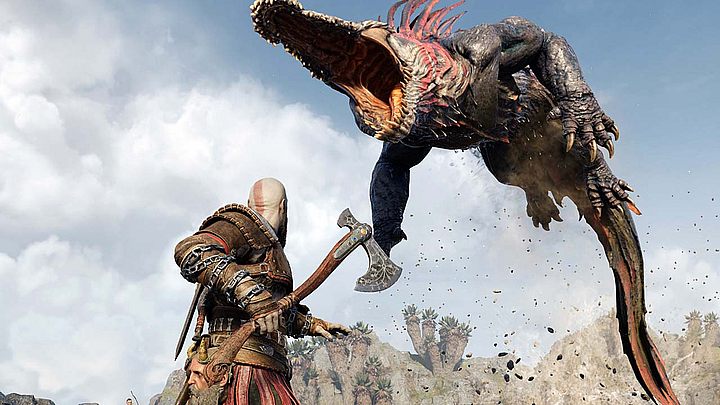
The growing pile of shame and game libraries bursting at the seams mean that my decision-making ability in basic matters becomes significantly weakened. What to play? What game to spend time on? The bliss of choice suddenly becomes the reason behind the faltering desire to play games at all. But not only that – it also gradually decreases the willingness to discover new games, thus weakening the probability that we'll indeed try something fresh, instead of sticking to what we already know and like. The result of this is focusing our attention on AAA games, which offer some steady ground for an oversensitive individual like me, guaranteeing that at least this facade, the pinnacle of the gaming Babel tower, will have something familiar and easily digestible.
I realize that the situation described above is not typical for every player, but it does become a problem for many. By putting people like me together with hosts of players, whose orbit of interests is limited to single titles, and whose cognitive horizon is curbed by regular iterations of the games they already know (released at quite a hectic pace), allows us to get to a sad truth – the tall hill, which the gaming industry is fighting an uphill struggle against is... the players.
That's the way they like it
Players, their preferences, reactions and, above all, wallets are always the impulse and starting point for producers, and they determine the difficulties that our medium has to overcome in order to move even half a step up the mountain that we ourselves have placed in front of it.
Freebies or game-services using microtransactions are the industry's bread and butter at the moment, and their representatives are topping the charts. Taking this direction was openly declared by such powerhouses as Activision Blizzard or Konami. Despite the cries of dissent, the business model works, the games bring money, so it seems only natural that the industry is taking this road.
The more susceptible we are to the power of nostalgia, the more resistant are the games we know and enjoy to the temptations of novelty. Developers are well aware of our weaknesses and fallacies and diligently take advantage of them. And what about us? We, gullibly, give in to them as if our banner was a white flag. While there’s nothing wrong with the notion of refreshing classics to present them to the younger generation, releasing reissues and remasters of games that are just a few years old is, in most cases, tantamount to a cash grab. A successful one, I might add. And if so, why not push further this way?
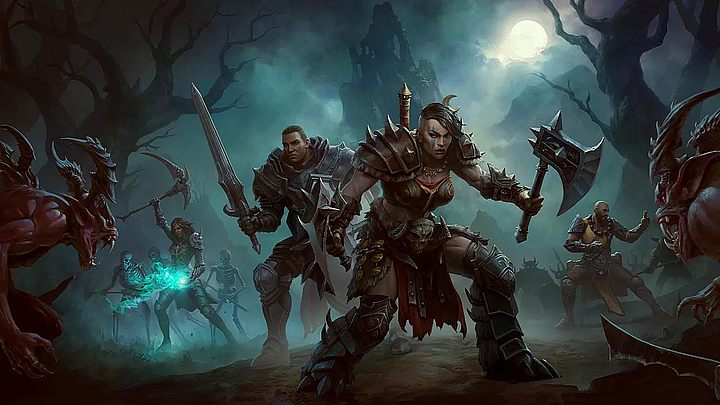
Publishers, especially the largest ones, abhor risks, unless they see a chance of sizable benefits. Most of their games and franchises have a very specific place on the market – a specific target group and often crowds of devoted fans. The practices that indie developers employ in order to avoid sinking in the onslaught of new games are alien to AAA producers. Although their portfolio may also include independent games, they treat them differently. They're looking for hens laying golden eggs. Why not multiply the success by releasing more variants, more installments, more incarnations under different guises? This is what, for example, Ubisoft has suggested by recently announcing a whole host of games in the Assassin’s Creed universe, or even CD Projekt RED, which made a similar declaration regarding its own "hens" – Witcher and Cyberpunk.
Publishers abhor risks. Why expose yourself to criticism and dissatisfaction when you can release the game in Early Access and partly burden us, the players, with some of the tricky parts of the development process? The most glaring example of this is Larian's Baldur's Gate III in Early Access. Why does such an experienced studio decide to take such a step? In a simplification, and after rejecting the arguments claiming that it is designed to fully meet the expectations of fans all around the world, I would say it's just lack of courage.
The list of sins, of course, doesn't end here. Examples of old, dried titles, almost covered with moss and barely touched with next-gen glitter, and yet selling like hotcakes, can be multiplied (Skyrim, GTA 5). Console ports of Sony's hits, despite prohibitive prices and just a few years separating them from the original releases, bring more and more income every year, and the forecasts only confirm that this is a brilliant solution from the business perspective.
Can the development of survival games, simulators, or boomer shooters be called a contribution to the progress of the industry? Meh. Nevertheless, we seem to love them. And it's us, the players, who move the goalposts, carve new commandments in stone tablets and, with our purchasing decisions, give the rhythm to the big band of game development.
It may seem that this band stagnates, and the answer to the question whether it will give us the show of our lifetime, or just sits there quietly, mouth open, depends to a large extent on how open we’ll be to the diversity that the gaming market offers.
- Everything announced during today's Day of the Devs presentation. Over 20 indie games you need to see
- “The first thing I really need to do is refocus on my family,” says Edmund McMillen, creator of The Binding of Isaac, while discussing his new game and sharing advice for indie devs
- Six great game announcements from the Game Awards that you may have missed
3

Author: Rafal Sankowski
He is into journalism; his texts appear both on GRYOnline.pl and in CD-Action magazine. In games, he values above all the universes that he can become a part of and believe in their authenticity. Approaches the world with a distance. When he's not playing, he walks through the forests, sleeps in a tent, listens to Jeremy Soule's music, and complains that they don't serve ramen in the forest.
Latest News
- End of remote work and 60 hours a week. Demo of Naughty Dog's new game was born amid a crunch atmosphere
- She's the new Lara Croft, but she still lives in fear. Trauma after Perfect Dark changed the actress' approach to the industry
- „A lot has become lost in translation.” Swen Vincke suggests that the scandal surrounding Divinity is a big misunderstanding
- Stuck in development limbo for years, ARK 2 is now planned for 2028
- Few people know about it, but it's an RPG mixing Dark Souls and NieR that has received excellent reviews on Steam, and its first DLC will be released soon

